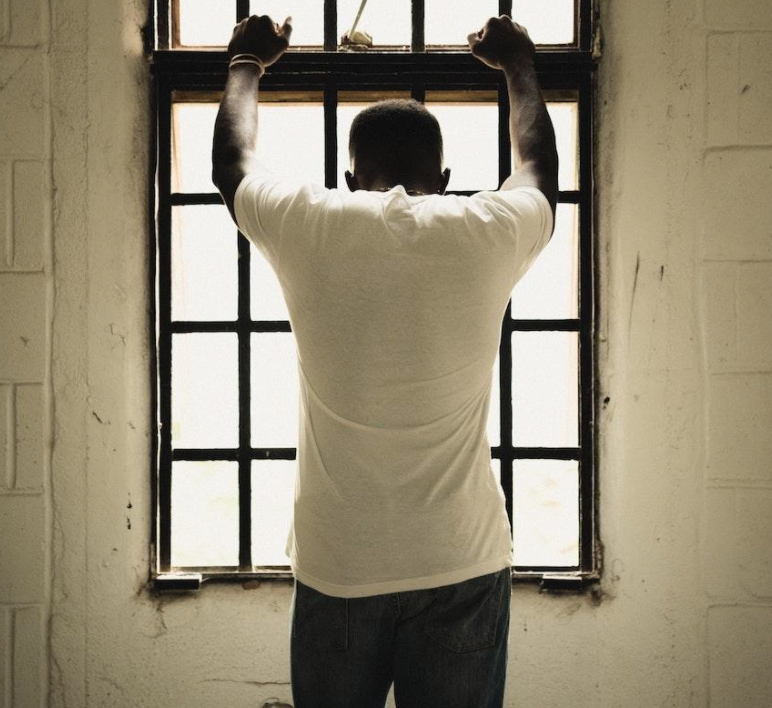|
3 Comments
Have you been arrested for domestic violence in Florida? If so, you need to know what happens next. After you are arrested, you will appear before a judge before you will be able to post bond. The penalties for domestic violence in Florida are significant. You could face up to a year of jail time or probation, and you will also have to suffer the consequences of having a criminal record. Being convicted of a domestic violence charge could also affect your employment, housing, and other opportunities. One of the best things you can do is contact Mark Solomon, P.A, an experienced domestic violence lawyer, who will aggressively defend you at your court hearing.
Drug possession is a serious crime no matter where in the country you live, and a conviction can have serious ramifications for your future. If you are found in possession of an illegal controlled substance such as heroin, methamphetamine, or cocaine, you will face serious third-degree felony charges. If convicted, you could serve up to five years in prison and pay significant fines. The most important thing you can do after being arrested for drug possession is to contact an experienced criminal defense lawyer. Attorney Mark Solomon, PA, has extensive experience successfully defending people against drug possession charges. We have listed some of the best tips for fighting a drug possession charge below.
Prove That You Were Not in Actual Possession of the Drug You can face drug possession charges after having been in actual or constructive possession of drugs. Actual possession of drugs happens when a police officer finds the drugs on your “person,” meaning in your jacket pocket, your pants pockets, or in a backpack or purse that you are carrying. You may be thinking that you will not be convicted because you did not own the drugs on your person. However, you can still face charges even if you did not own the drugs in your pocket, and they belong to your friend. The fact that you did not own the illicit drugs is not a defense to drug possession crimes. You can defend yourself by contending that you are never in actual possession of the drugs. Perhaps someone else put the drugs in your pocket, or the drugs were found in a bag that did not belong to you. You can also challenge this element of the case by claiming that the law enforcement officers to arrest you violated your constitutional rights. Your lawyer can call into question the search that law enforcement engaged in when they found the drugs. To legally stop someone, law enforcement officers must have probable cause to search you or your vehicle. Probable cause means the officers had a reasonable suspicion that they have committed or are about to commit a crime. Law enforcement officers can pull you over based on a reasonable suspicion that you were committing a crime or about to commit a crime. Still, they cannot search for your person or your vehicle without proving that they had probable cause. When law enforcement officers cannot justify why they pulled you over or searched your car, you will likely have a winning defense that they violated your constitutional rights and the judge should throw out the charges against you. Prove That You Were Not in Constructive Possession of the Drugs Suppose you were charged with possession of illicit drugs after law enforcement found drugs in your apartment. In that case, you may be able to argue that you were not in constructive possession of the drugs. Prosecutors must prove that you knew the drugs were located where they were found, and you had the ability to control the drugs or access them to prove constructive possession. For example, suppose you are a passenger in a motor vehicle that you do not own, and law enforcement officers find cocaine in the glove compartment. In that case, you can be charged with constructive possession of an illicit drug so long as the following elements are met:
It can be difficult for prosecutors to prove that you knew drugs were in the location law enforcement officers found the drugs. For example, just because they found marijuana tucked inside a couch in an apartment you share with roommates does not mean they can prove you put the marijuana there or even knew about the marijuana. In other words, just because law enforcement officers found the drugs near you, or in a place you share with other people, does not mean you were in constructive possession of the drugs. Additionally, you claim that law enforcement officers violated your constitutional rights when searching for illegal drugs. Crime Lab Analysis Defense Police officers do not always properly identify substances. Just because something looks like LSD or cocaine does not mean it is. The prosecutor must prove that the substance was indeed properly identified by the police to succeed in convicting a defendant for possession of an illicit substance. They must send the evidence to the crime lab so experts can analyze the substance and confirm that it is an illegal drug. State crime labs are incredibly overburdened and have been known to make mistakes when analyzing chemicals. They could and properly identify the chemical found at the crime scene, or they may even improperly weigh the drugs. When police officers or lab technicians wrongly way the drugs, you could receive a harsher charge and sentence as the penalties for drug possession are based on the weight of the drugs found at the crime scene. The Drugs Were Planted There are many different reasons why someone would plant drugs on you, in your car, or at your home. Perhaps they are seeking revenge, or they needed to ditch the drugs quickly to avoid being arrested themselves. The testimony of police officers carries a lot of weight during criminal trials, but you can claim that the drugs were planted by police officers or someone else. If successful, you will be able to show that you are not in actual or constructive possession of the illicit drugs and that you should be found not guilty. Contact a Criminal Defense Lawyer Today Every case involving drug possession is unique, and you need an experienced lawyer who will review the details of your case and develop an effective defense strategy. If you or your loved one are facing drug possession charges, contact today to schedule your initial consultation and learn how he can advocate for your rights.  Assault, battery, and domestic violence crimes are all commonly mistaken for each other. These crimes have different elements and people frequently mix them up. If you have been accused of one of these crimes, it is wise to understand what your criminal charges mean, and what the prosecutor will need to prove to secure a conviction. Battery Charges The crime of battery is what many people refer to as “assault.” The crime of battery can happen in two different ways. First, someone can intentionally touch or strike another individual against their will. This type of battery is intentional and involves physical contact. The second type of battery happens when an individual intentionally causes someone else bodily harm. A first battery offense is a first-degree misdemeanor, carrying a fine of up to $1,000 and up to a year in jail. If you have another battery conviction on your record, you will be charged with a third-degree felony, which carries a sentence of up to $5,000 in fines and up to five years of jail time. Aggravated Battery Charges Prosecutors can bring charges of aggravated battery when the circumstances around the incident are particularly severe—those convicted of aggravated battery face up to $10,000 in fines or 15 years in prison. The penalties for aggravated battery are increased. For prosecutors to secure an aggravated battery conviction, they will need to first prove that an underlying battery occurred. Then they need to prove that one of three additional factors are present. Specifically, they need to prove the following:
Assault Charges An assault happens when someone verbally or physically threatens to harm another person. There needs to be an “apparent ability” of the defendant to carry out his or her threat. Additionally, the threat must create in the victim a reasonable fear that the violence is imminent.,Many people assume that assault involves hitting, striking, or punching someone else. However, a defendant does not need to make physical contact with the victim to face assault charges. Instead, all they need to do is take a swing at someone with their fist or engage in a verbal threat without making contact to meet the assault elements. Assault is a second-degree misdemeanor, which carries up to a $500 fine and up to 60 days in jail. The penalty for assault could be higher if there are aggravating circumstances, such as domestic violence assault or aggravated assault. Aggravated Assault Prosecutors need to prove four elements to convict a defendant of assault:
Prosecutors will need to prove that the defendant intended to threaten violence against the alleged victim. To do so, they need to show that the defendant intended violence against the alleged victim. The prosecutor does not need to prove that the defendant made actual contact or wounded the victim at the time of the assault. A deadly weapon means any weapon that the defendant used or threatened to be used in a way that is likely to produce great bodily harm or death. Aggravated assault is a third-degree felony. The penalties for a conviction of aggravated assault include up to five years in prison, five years of probation, and a fine of up to $5,000. Prosecutors take assault extremely seriously and aggressively prosecute defendants. Even if you are a first- time offender, you faced a possibility of serving jail time if you are convicted. Domestic Violence Charges Domestic violence occurs when the defendant commits a crime against his or her domestic partner. Domestic violence is different from assault or battery because the prosecutor must prove that the alleged victim and the defendant have a domestic relationship with one another. Specifically, the prosecutor must prove that the defendant and the victim live together, have lived together in the past, or share a child together. When the two individuals do not have a child together, they must be spouses, former spouses, related by marriage, related by blood, residing together as a family, or have resided together as a family in the past. When the special relationship exists between the victim and the defendant, prosecutors can charge the defendant with domestic violence. All of the following crimes can be considered domestic violence charges:
Contact Our Experienced Criminal Defense Lawyers If you have been charged with battery, assault, or domestic violence, you need an experienced criminal defense lawyer on your side. Contact Mark Solomon, P.A today to schedule your free initial consultation. Two years ago, a Palm Beach County lawyer named John Carter asked County Judge Marni Bryson to disqualify herself due to her history with a particular case. The judge convicted the lawyer of contempt of court and sentenced him to a month in jail. Appellate attorney Donna Solomon and her husband Mark Solomon represented Carter through his appeal. Carter’s legal team is pleased with the verdict, with Donna Solomon stating that the judges “rendered a very well-reasoned decision and we are pleased with the result.”
The History of the Case On March 23, 2018, Carter entered Bryson’s courtroom. He was representing his client in a DUI case. The lawyer stated that it was not his client’s fault for not appearing in court because his client never received notice of the hearing. Carter and Judge Bryson then got into a verbal dispute over whether he had signed for the hearing notice. Carter stated that in his 35 years as a lawyer, he had never experienced anything like it. He also stated that the judge was “disrespectful to the people of Palm Beach County” and that he was appalled. At the end of the exchange, the judge stated that she would recuse herself from the case and told Carter to leave, saying that she could not take him “seriously.” A few days after the exchange, the judge submitted contempt charges against Carter. The grounds for the contempt charges are the alleged misrepresentation that he did not sign for a court document. Carter’s claim that someone else forged his signature set off the verbal dispute. During the contempt hearing, Carter continued to maintain that he never signed the notice to appear. Carter’s Contempt Hearing Bryson convicted Carter of contempt of court charge and sentenced him to 30 days in jail. Only hours after Carter entered a Palm Beach County Jail, the Court of Appeal ordered Carter’s appeal to the 15th Circuit Court. That night, a circuit judge ordered Carter’s release and he walked back out of jail. During the hearing for contempt of court, Bryson submitted a video as evidence. The video showed Carter walking up to the clerk of the court’s desk next to the judicial bench. The desk of the clerk was not within the range of the camera and was thus not captured in the video footage. When Carter comes back into the video frame, he is walking away from the clerk’s desk. The video appears to show him holding several pieces of paper. He then rejoins his client. According to court records, the clerk logged in a signed hearing notice into the court’s online filing system. Carter stated that he did not know what those papers were. Carter’s client stated that a new hearing date had not been set and that the court clerk would contact both of them when they scheduled a new hearing date. The Decision of the Circuit Court Two years after Carter was convicted of contempt of court, three Circuit Judges issued a ruling that Bryson made an error. The case started in county court, so a circuit court handled the appeal. First, the court ruled that she made an error when she failed to recuse herself from Carter’s contempt hearing. The Circuit Court ruled that Bryson should have recused herself because of the history she had with the case. The Circuit court also agreed that Bryson should not have ordered Carter to complete a mental-health evaluation. Finally, the Circuit court ruled that Bryson was wrong to refuse to set a bond for Carter after she had convicted him. The Judge Should Have Recused Herself This circuit court decision will protect lawyers who have been charged with contempt. The level of animosity between the judge and Carter should have been sufficient for Bryson to recuse herself from trying Carter’s contempt charges. Her animosity was enough to give Carter a reasonable fear that he would not receive a fair hearing before Bryson, according to Carter’s attorney Donna Solomon. County Judge Robert Panse has been assigned to hear Carter’s new contempt hearing, scheduled for July 17th. Carter will be asking the judge to dismiss all of the contempt charges against him. The Impact of the Circuit Court Ruling In its ruling, the circuit court wrote, “we cannot overlook that Judge Bryson recused herself from (Carter’s) client’s case not because of a conflict she had with his client, but because of an issue she had with (Carter.) Not only did she make that explicitly clear when she stated her basis for the recusal, but also when she stated that she ‘can’t take (Carter) seriously.’” This ruling could become extremely helpful for lawyers who are facing contempt charges in the future. Everyone has a right to a fair trial, including lawyers who are facing contempt charges. When a judge displays an animus toward a lawyer based on personal opinion, that judge should not be able to preside over the lawyer’s contempt hearing. The Value of Hiring an Experienced Lawyer for Your Defense Attorney Mark Solomon represented Carter during the initial contempt of court charges. For the appellate case, Attorney Donna Greenspan Solomon secured a favorable verdict. Carter’s case showcases the need for experienced appellate lawyers. In this case, a judge who clearly showed animosity toward Carter as a lawyer presided over his contempt hearing, making it difficult, if not impossible, for him to have a fair trial. If you are facing criminal charges, hiring an experienced trial lawyer is imperative. When an unfavorable verdict occurs at the trial court level, you need an experienced appellate lawyer. Contact Mark Solomon, P.A. today to schedule your consultation with our South Florida criminal defense law firm. Facing sex crimes charges in South Florida can be extremely difficult. Even if you are innocent and the charges are dismissed, the stigma of being charged can stay with you for a long time. Understanding the different types of Florida sex crimes is important. If you have been charged with a sex crime in Florida, it is important to hire an experienced sex crimes defense lawyer as soon as possible.
Sex Crimes with a Minor in Florida Florida prosecutors take sex crimes against a minor extremely seriously. When a victim is below the age of legal consent, he or she cannot legally give permission for sexual contact with an adult. Someone who is 17 years old or younger who has sexual intercourse with someone 24 years old or older will be considered the victim of a sex crime. The fact that you did not know the age of the victim will not be a valid defense against sex crimes with a minor charges. You will need to start building your case as soon as possible. You could face severe penalties, which could include up to 15 years in prison and fines up to $10,000. Sexual Rape and Battery Rape is one of the most serious sex crimes and one with which most people are familiar. In Florida, prosecutors often charge people with rape and sexual battery at the same time. The use of any force or any coercion can justify a crime of rape or battery. Those convicted of rape and sexual battery will be placed on a sex offender registry for the rest of their lives. The court looks at aggravating factors that will increase the standard sentencing of a conviction. Aggravating factors include intimidation, assault with a deadly weapon, or physical injury. Facing a charge of rape can easily ruin your life. Even if you are not found guilty of rape, the stigma of the rape charge can change your life for the worst. Rape happens when one adult does not consent to sexual activity. They might be unable to consent because they are on drugs, drunk, or otherwise mentally unable to consent. In this case, the act could be considered sexual battery or rape under Florida law. Statutory rape is a crime that happens when a person is 24 years old or older and has sexual contact with someone 16 or 17 years old. This crime is a second-degree felony. In this context, sexual activity includes anal, oral, or vaginal intercourse or penetration. Statutory rape can also include cases in which both parties are minors and one party cannot consent, but both parties meet the age difference requirements. The Punishment for Rape in Florida The punishments for rape vary in Florida. The sentence will depend on the age of the victim, whether a weapon was involved, and whether the assault caused someone’s injuries. When rape is a second-degree felony, it will be punishable by up to 15 years in prison as well as 15 years of sex offender probation. Additionally, the defendant could face 7 and ¾ years in prison along with two years of sex offender probation. Lewd Conduct and Lascivious Behavior This sex crime involves someone who engages in sexual activity with a minor who is under the age of 16. Prosecutors will bring the charge of lewd conduct and lascivious behavior when sexual misconduct happened that did not add up to rape. If you are ignorant of the true age of the other party, you will not have a valid defense. There are four different types of charges under this crime:
Lewd and Lascivious battery happens when you have sex with someone age 12 to 15. It also includes enticing, encouraging, or forcing any person less than 16 years old to engage in sexual bestiality, prostitution, sadomasochistic abuse, or any other act involving sexual activity. Lewd and lascivious molestation happens when a person intentionally touches in a lewd or lascivious manner the breasts, genitals, genital area, or buttocks, or the clothing covering them, of a person less than 16 years of age, or forces or entices a person under 16 years of age to so touch the perpetrator. Age is Often Involved in Sex Crimes The age of the parties involve often comes into play when prosecutors charge sex crimes. When the two parties involved are younger than 16 or 17, or 23 and 24, you might be charged with a sex crime even when both parties consent. Florida changes the ages occasionally, so it is important to stay on top of the current Florida laws. Possession of Child Pornography in Florida Possession of child pornography is against federal law and Florida law. It is illegal to possess any video or image of a child engaged in a sexual act. Even viewing child pornography is a crime. When law enforcement can find child pornography on your phone or computer, or when you have shared such an image or video, you could face child pornography charges. There are several different types of child pornography charges, including the following:
If you have been charged with any sex crime, it is important that you contact an experienced criminal defnese lawyer as soon as possible. You are entitled to a legal defense and the sooner you work with a lawyer to develop your legal strategy, the better. Contact Mark Solomon, P.A. as soon as possible to schedule your free initial consultation. |
AuthorWrite something about yourself. No need to be fancy, just an overview. Archives
August 2021
Categories |






 RSS Feed
RSS Feed

